Rage 2 patch removes Denuvo, but performance is worse
After a day-0 crack and user complaints, apparently Denuvo wasn't worth keeping. Also: benchmarks.
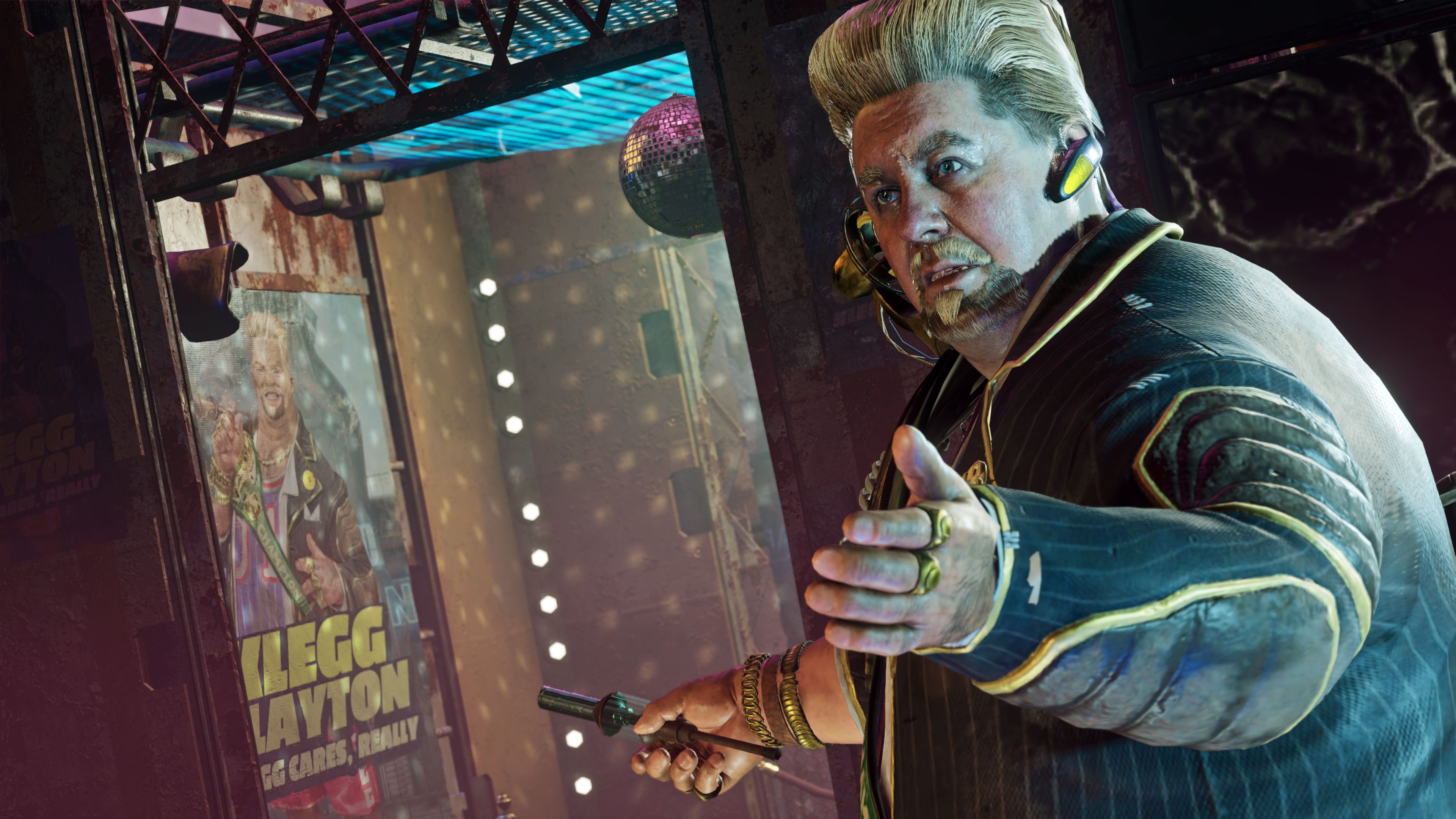
Rage 2 has launched to mixed reviews—good gunplay, weak driving, and an awfully short main story. I ran a whole bunch of Rage 2 benchmarks as well, and found it to be relatively taxing on budget graphics cards. I haven't quite finished the game yet, but when I launched Steam yesterday I saw a small update available. Digging into the patch details was a bit eye opening: a PC hotfix has removed the Denuvo copy protection. Probably because it wasn't doing its job, since it was cracked the day of release.
There's more to the story than that, however. The Bethesda Launcher version of the game shipped without Denuvo, and Steam owners were not pleased. I didn't encounter any issues during testing (on seven PCs, including three laptops), but either way Denuvo is gone. Other changes include a crash reporter, fixes for occasional Scaleform-related crashes, a fix for the occasional crash on startup, and a few other tidbits.
We've discussed before the idea of whether or not Denuvo actually hurts performance in games. I maintain that done properly, it shouldn't really matter—a game might take a few seconds longer to load, but actual performance shouldn't change. If it does, that would imply Denuvo checks constantly running within the main game loop, which would make no sense.
Armed with my earlier results, I checked a few test scenarios. Just to be clear, each test was run at least twice, taking the higher result. Variation between test runs is generally very small in Rage 2, with the exception of minimum FPS which I don't directly report (here's an example of the three runs per setting on Core i7-8700K OC and RTX 2080).
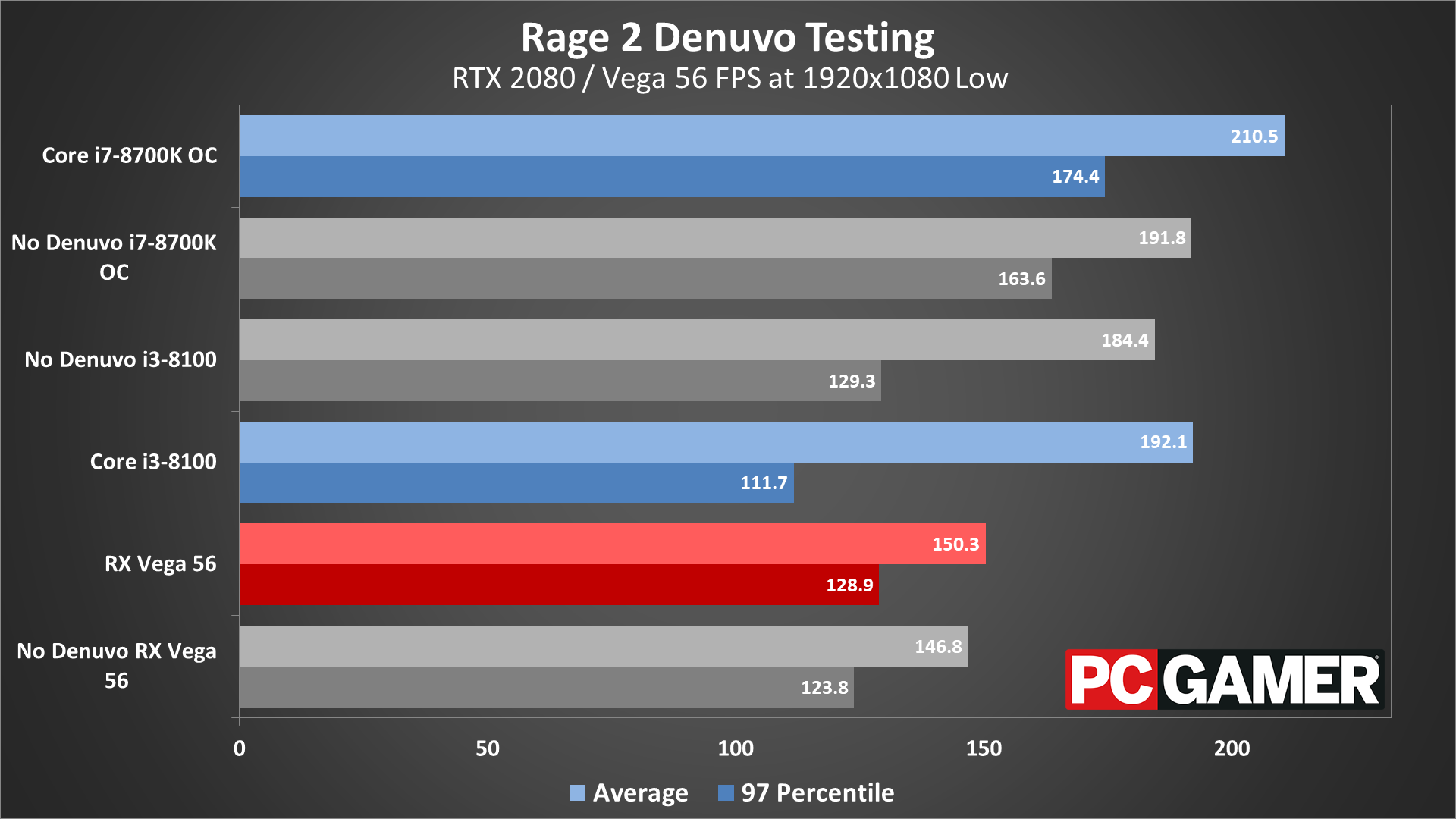
Swipe left/right for additional charts
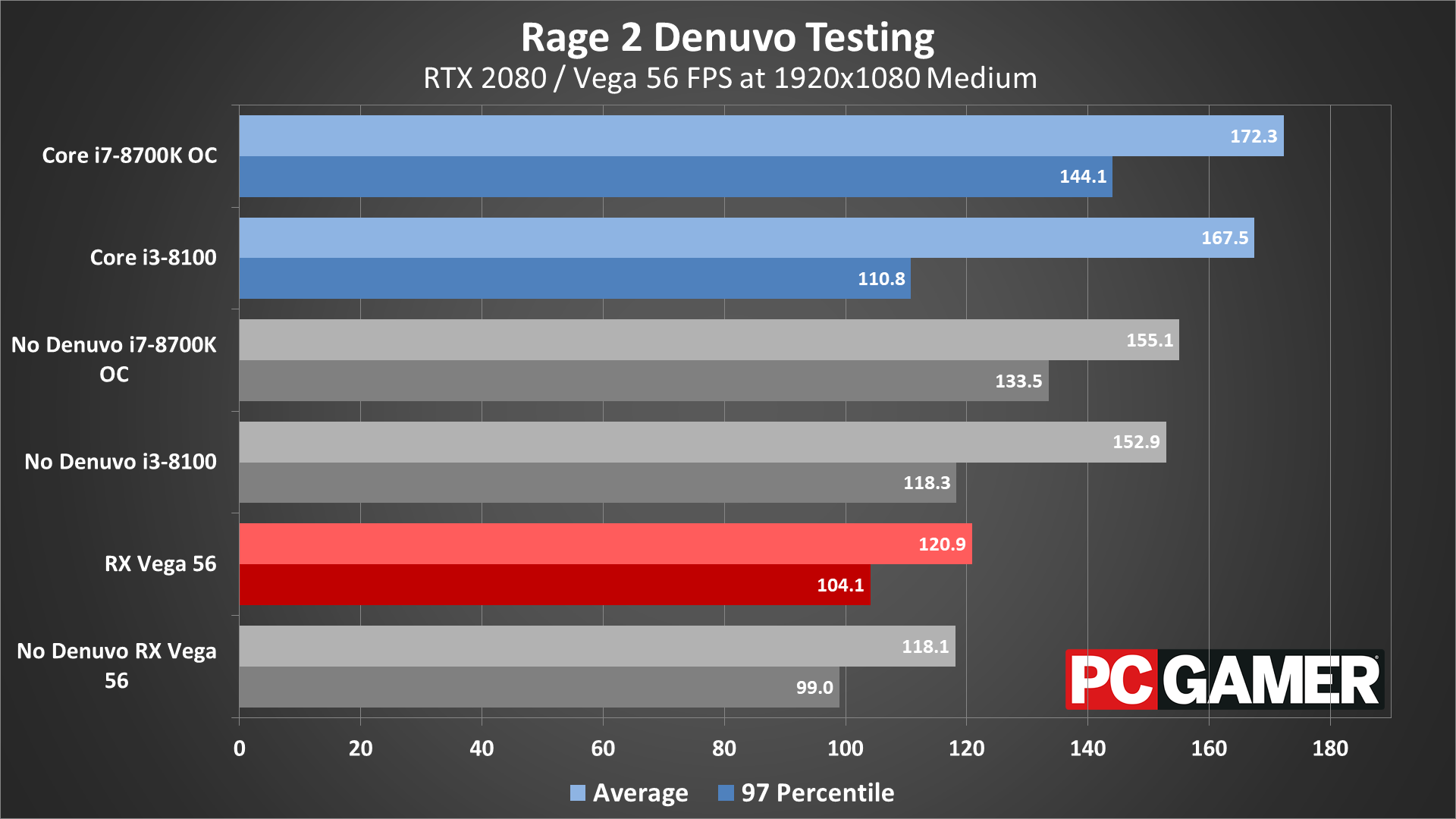
Swipe left/right for additional charts
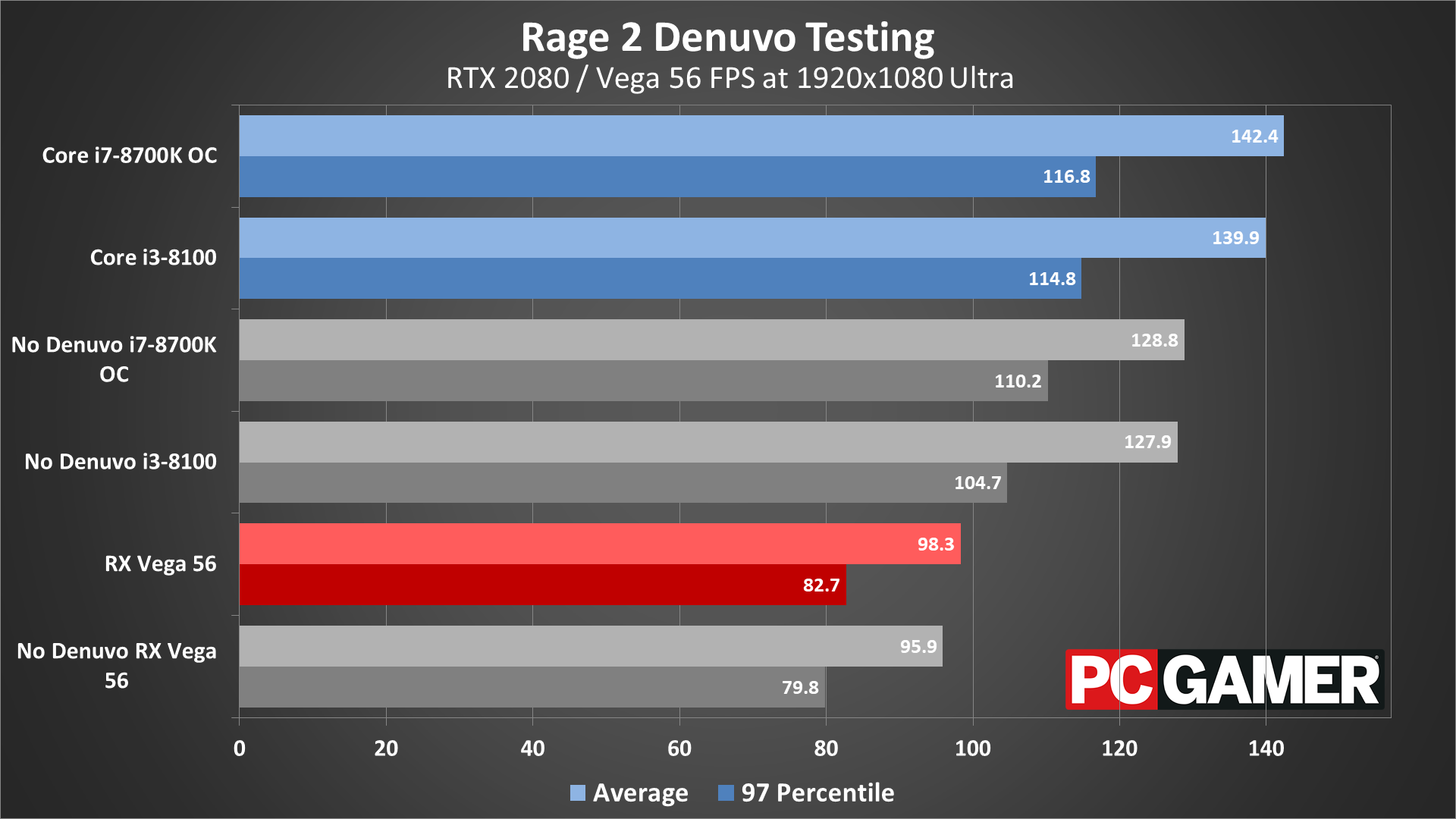
Swipe left/right for additional charts
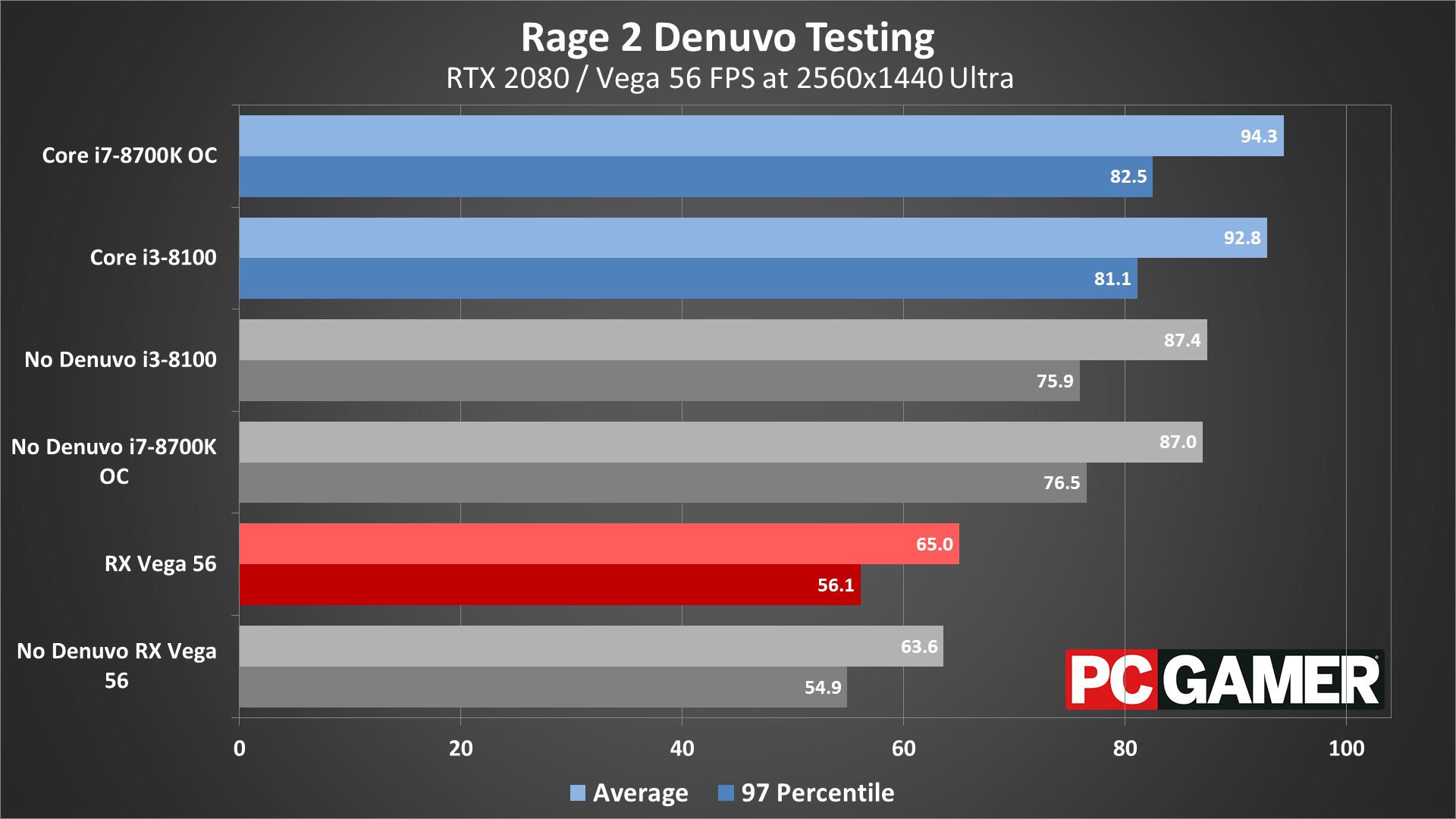
Swipe left/right for additional charts
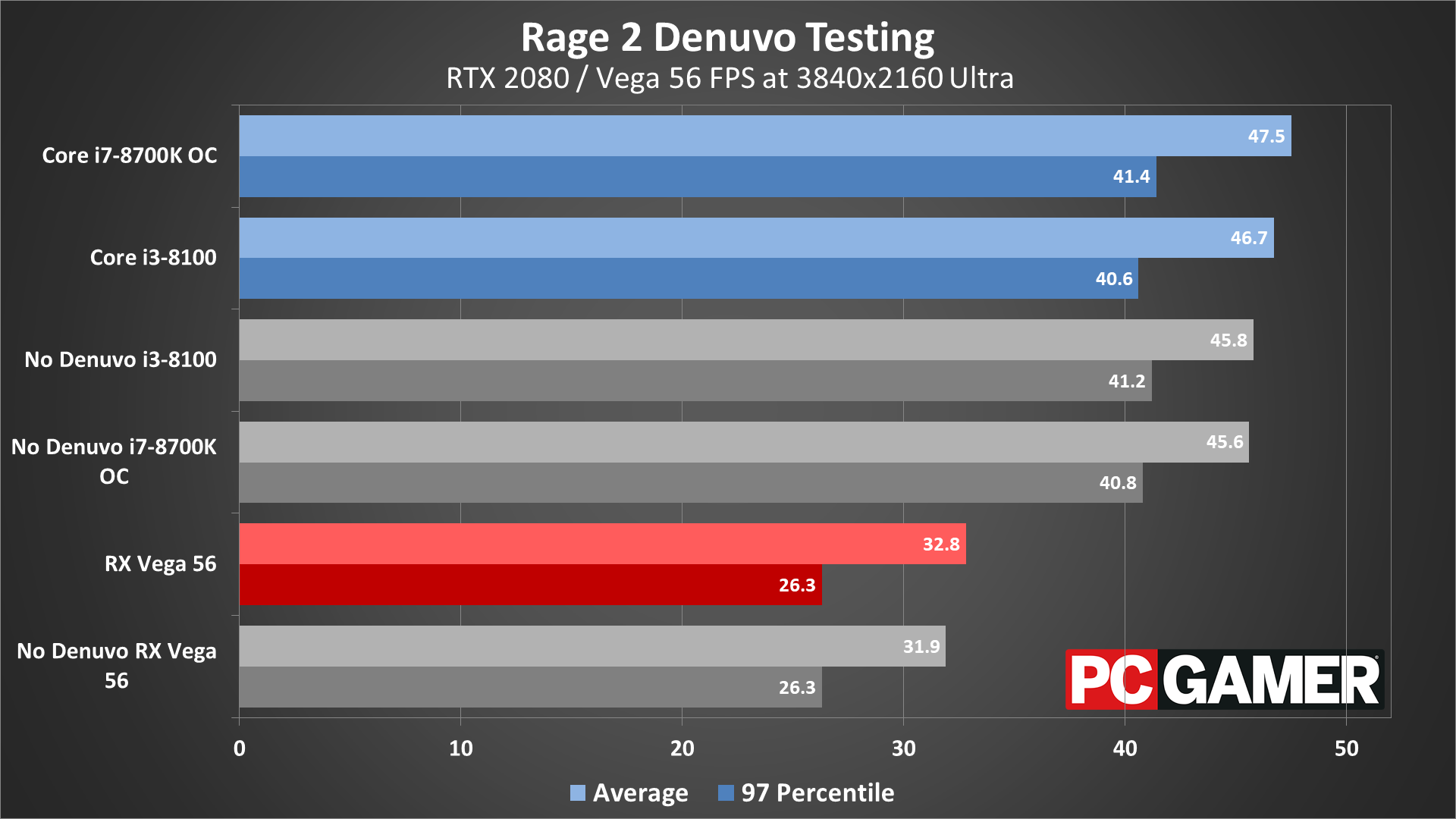
Swipe left/right for additional charts
First, I used an RX Vega 56 (because that's what was in my testbed). This is with a Core i7-8700K overclocked to 5.0GHz. Performance with the non-Denuvo patch is about 2-3 percent slower across the range of test settings. Hmm.
Because one data point wasn't enough, and because I thought a slower CPU would be more likely to show gains from disabling Denuvo, I also tested with the RTX 2080 using both the overclocked i7-8700K and a Core i3-8100. The Core i3-8100 showed slightly better minimum fps results at times, but average fps was down anywhere from 2 to 9 percent. The i7-8700K meanwhile is down a consistent 8-11 percent (but only 5 percent at 4K).
So… yeah. The patch that removed Denuvo didn't actually help performance. In fact, performance is clearly worse in nearly every case. While AMD's GPU only lost a few percent, which isn't a huge difference, Nvidia's high-end RTX 2080 losing up to 10 percent is significant.
Keep up to date with the most important stories and the best deals, as picked by the PC Gamer team.
Again, I'm not saying removing Denuvo actually dropped performance, but it didn't also improve performance. It's probably other aspects of the patch are to blame for the performance drop (maybe the crash reporter relies on extra data being logged?), or that there's a weird interaction between the drivers and the new version of Rage 2. It's sort of a moot point as well, since Steam will give you the updated game whether you want it or not, and I wouldn't be surprised to see future updates change performance again.
Of course, I didn't have issues running Rage 2 with Denuvo in the first place, while others say they did. I'm also using modern motherboards and CPUs—nothing older than 8th Gen Core and 2nd Gen Ryzen. That's another potential factor, and older CPUs could give different results. Maybe there are gremlins in my testbed. Whatever the case, as far as proof that Denuvo was causing worse performance, I couldn't generate any.
Jarred's love of computers dates back to the dark ages when his dad brought home a DOS 2.3 PC and he left his C-64 behind. He eventually built his first custom PC in 1990 with a 286 12MHz, only to discover it was already woefully outdated when Wing Commander was released a few months later. He holds a BS in Computer Science from Brigham Young University and has been working as a tech journalist since 2004, writing for AnandTech, Maximum PC, and PC Gamer. From the first S3 Virge '3D decelerators' to today's GPUs, Jarred keeps up with all the latest graphics trends and is the one to ask about game performance.


